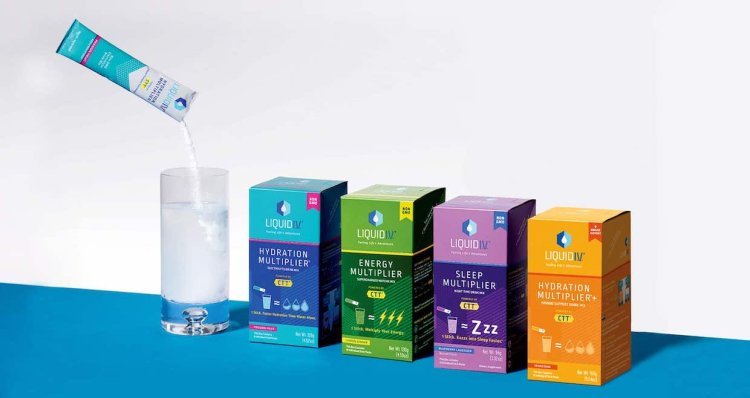Unilever's Health & Wellbeing Collective CEO Emphasizes a Shift in the Definition of Health

Unilever's Health & Wellbeing Collective CEO Discusses Industry Trends and Expansion Opportunities
Jostein Solheim, the CEO of Unilever's Health & Wellbeing Collective, recently shared insights into the vitamin, mineral, and supplement (VMS) category and the changing landscape of health and wellness. Unilever's strategy has involved consolidating its seven VMS brands into a single entity by 2022. The collective includes popular household brands like Liquid IV beverage supplement, Olly vitamins, and Nutrafol, contributing to an impressive annual sales figure exceeding $1 billion.
Solheim highlighted the significant shift in consumer attitudes toward health, where individuals are taking more control and responsibility for their well-being. This change was particularly evident during the pandemic, with people actively engaging in discussions and seeking information from sources such as friends, family, social media, and personal research. The CEO emphasized that the conventional definition of health as merely the absence of disease no longer holds true. Instead, individuals now prioritize benefit-led personalization, seeking tailored solutions that align with their specific health journeys and beauty goals.
Regarding the development of the VMS category, Solheim identified several positive trends driving the industry. As people become more knowledgeable and gain access to diagnostic tools, the focus shifts toward meeting individuals at their current health status. For example, Nutrafol's approach involves understanding the internal factors that contribute to hair health and providing targeted solutions to support hair from within. Furthermore, the conscious consumer trend has emerged, with people showing strong engagement and support for brands that align with their values and contribute to meaningful causes.
Solheim also discussed the opportunities presented by the Chinese market. Unilever has ventured into China with its Olly and SmartyPants multivitamin children's businesses through cross-border e-commerce, and they recently launched Nutrafol in the country. China, being the second-largest VMS market after the US, offers significant potential for growth. Similarly, India is gradually becoming a traditional VMS market, with practices rooted in Ayurveda and traditional Chinese medicine. Solheim recognized the unique needs of both countries and the importance of tailoring health solutions accordingly.
When asked about competing with China's longstanding tradition of Traditional Chinese Medicine (TCM), Solheim explained that Unilever incorporates active ingredients and concepts from TCM into its products. The company simplifies these ingredients and applies them to specific verticals, such as beauty, skin, sleep, and stress, as exemplified by Olly. Unilever aims to provide consumers with accessible solutions while maintaining a connection to the rich heritage of Chinese medicine.
Regarding regulatory oversight, Solheim expressed support for measures that enhance consumer confidence and raise industry standards. He emphasized the need for a balanced regulatory framework, citing the US as an example where innovation and learning are not hindered by overly restrictive regulations. Solheim noted that certain markets struggle to foster innovation due to narrow regulatory frameworks, limiting the availability of new active ingredients, such as Ashwagandha.
Unilever's Health & Wellbeing Collective continues to navigate the evolving landscape of health and wellness, capitalizing on consumer-driven trends and expanding into promising markets while maintaining a commitment to quality and innovation.

 chandni
chandni 



